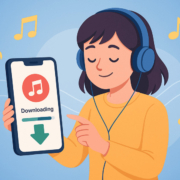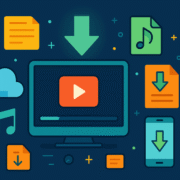The Ethics of Downloading Online Content
In today’s interconnected world, online content, from music, videos, eBooks, to software, is more accessible than ever. With a few clicks, anyone can download almost anything they want, thanks to technology like YouTube Video Downloaders and countless other tools. But as digital content becomes increasingly easy to obtain, the ethical questions surrounding downloading practices grow more important than ever.
The Value Behind Digital Content
Behind every piece of digital content lies a creator’s effort, creativity, and investment. Musicians compose songs, filmmakers produce movies, writers craft stories, and educators develop valuable instructional materials. Producing high-quality content requires time, money, and passion. When users download this content without proper authorization, it not only violates copyright laws but also undermines the creators’ ability to earn a living and continue producing valuable work.
Why Ethics Matter in Downloading
Ethical considerations go beyond legal compliance. Downloading content without permission, even if technically possible, raises moral questions about fairness and respect for intellectual property. Creators depend on royalties, licensing fees, and legitimate sales to sustain their craft. Illegal downloading often leads to financial loss for them, which can result in fewer new works and diminished quality over time.
Using tools like a YouTube Video Downloader may seem harmless or convenient for offline viewing. However, if videos are downloaded without explicit permission from the content owner, it can constitute copyright infringement. Many creators publish their videos under specific terms that do not allow unauthorized downloads, and platforms like YouTube enforce these rules to protect intellectual property.
Supporting Creators Through Ethical Choices
Choosing to download content ethically means respecting the creator’s rights and supporting legal avenues for access. Many platforms offer paid downloads, subscription services, or ad-supported streaming that fairly compensate creators. There are also plenty of resources legally available for free, such as works under Creative Commons licenses or content in the public domain.
By opting for these legitimate channels, consumers contribute to a sustainable digital ecosystem where creativity and innovation can flourish. Ethical downloading supports fair compensation, incentivizes new creations, and helps maintain a diverse and rich pool of digital content.
The Broader Impact of Illegal Downloads
While one illegal download might seem insignificant, the collective impact of downloading online can be substantial. Piracy and unauthorized downloading result in billions of dollars in losses globally, hurting not only individual creators but entire industries. This loss can lead to job cuts, decreased investments in new projects, and limited access to quality content in the future.
Furthermore, illegal downloading can expose users to security risks, including malware and viruses, which often accompany unauthorized download sites. Ethical downloading, therefore, protects both creators and consumers.
Conclusion
In an era where digital content is at our fingertips, ethics in downloading online content have never been more critical. Respecting copyrights, supporting creators through legal means, and making mindful choices about how we access content ensures a healthy, fair, and vibrant digital world. Next time you think about downloading a video, music track, or any other material, remember that ethical consumption preserves creativity and keeps the digital ecosystem thriving for everyone.




Leave a Reply
Want to join the discussion?Feel free to contribute!